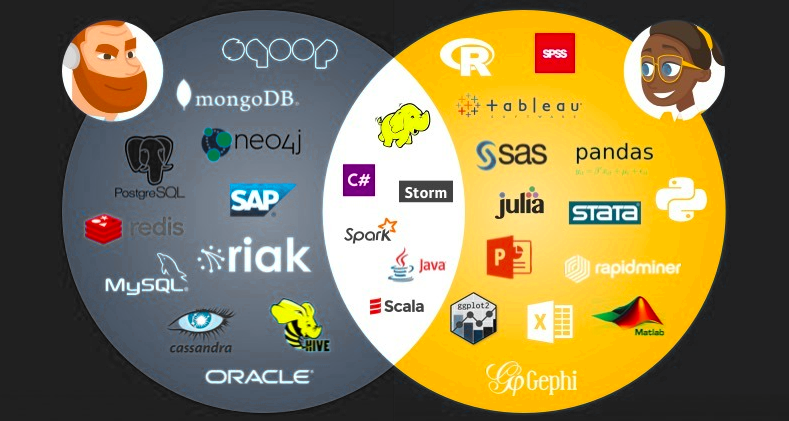In today’s data-driven world, both data engineering and data science play crucial roles in helping businesses make informed decisions. While these fields are interconnected, they each have distinct responsibilities and career paths. This blog will delve into the differences between data engineering and data science and explore the exciting career opportunities in each field.
What is Data Engineering?
Data engineering focuses on designing, building, and maintaining the infrastructure that allows for the collection, storage, and analysis of data. Data engineers are responsible for ensuring that data is accessible, reliable, and available for analysis. They work with large datasets and develop data pipelines, which are automated processes that transport data from one system to another. This role requires strong skills in programming, database management, and big data technologies.
Key Responsibilities of Data Engineers:
- Data Pipeline Development: Creating systems to gather, process, and store data efficiently.
- Data Warehousing: Managing and organizing data in databases and data warehouses.
- ETL Processes: Extracting, transforming, and loading data from various sources.
- Data Quality Assurance: Ensuring data accuracy and reliability through testing and validation.
- Collaboration: Working closely with data scientists and analysts to understand data needs and provide the necessary infrastructure.
What is Data Science?
Data science, on the other hand, involves analyzing and interpreting complex data to extract meaningful insights. Data scientists use statistical methods, algorithms, and machine learning techniques to analyze data and make predictions. This role requires a strong foundation in mathematics, statistics, and programming, as well as domain-specific knowledge to understand the context of the data.
Key Responsibilities of Data Scientists:
- Data Analysis: Exploring and analyzing large datasets to identify patterns and trends.
- Machine Learning: Developing and applying machine learning models to make predictions and automate decision-making.
- Statistical Modeling: Using statistical techniques to interpret data and draw conclusions.
- Data Visualization: Creating visual representations of data to communicate findings effectively.
- Business Insight: Translating data insights into actionable business strategies.
Career Opportunities in Data Engineering
- Data Engineer: Responsible for building and maintaining data pipelines and infrastructure.
- Big Data Engineer: Specializes in working with large-scale data processing systems like Hadoop and Spark.
- Database Administrator: Manages databases to ensure data availability and performance.
- ETL Developer: Focuses on the extraction, transformation, and loading of data from various sources.
Career Opportunities in Data Science
- Data Scientist: Analyzes data to extract insights and develop predictive models.
- Machine Learning Engineer: Designs and implements machine learning algorithms.
- Data Analyst: Interprets data to help businesses make informed decisions.
- Business Intelligence Analyst: Creates reports and dashboards to visualize data insights.
Skills Required for Data Engineering and Data Science
While both fields require a strong foundation in programming and data manipulation, there are distinct skills needed for each role:
- Data Engineering Skills:
- Proficiency in SQL and database management.
- Experience with big data technologies like Hadoop and Spark.
- Knowledge of data warehousing solutions like Amazon Redshift and Google BigQuery.
- Familiarity with ETL tools and processes.
- Data Science Skills:
- Strong understanding of statistics and probability.
- Proficiency in programming languages like Python and R.
- Experience with machine learning libraries like TensorFlow and scikit-learn.
- Ability to visualize data using tools like Tableau and Power BI.
Conclusion
Both data engineering and data science are essential in today’s data-driven world, offering unique career opportunities for those with the right skills. Data engineers build and maintain the systems that store and process data, while data scientists analyze this data to extract valuable insights. Whether you’re interested in building data infrastructure or analyzing data to drive business decisions, both fields offer rewarding and dynamic career paths.



